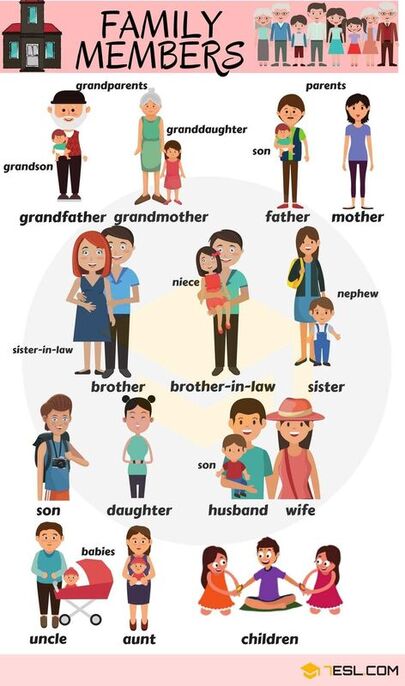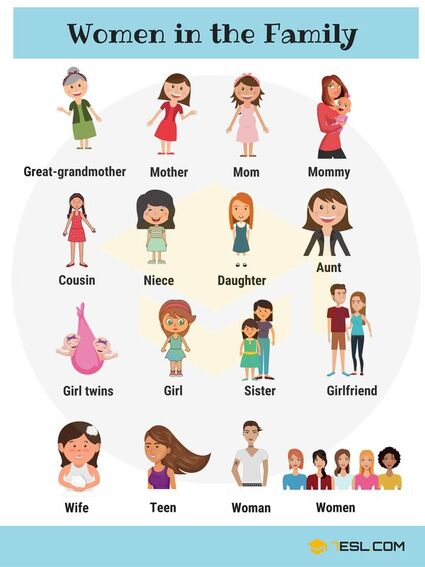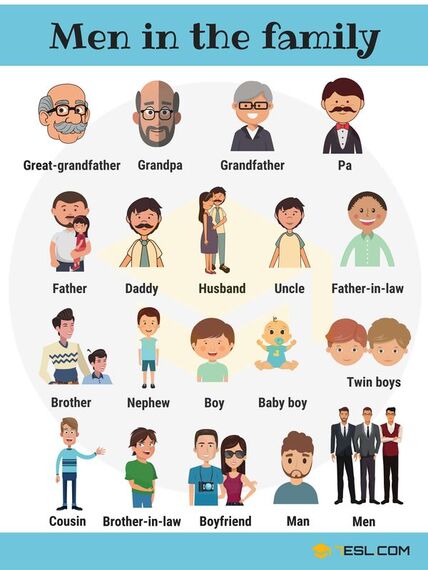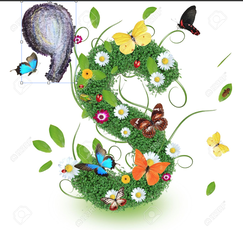Family Vocabulary
and the uses of ('s)
Family Vocabulary
Take a look at these pictures to learn the names of family members:
Do you want to make sure you're pronouncing these words correctly? Here's a video to help you!
*There are two uses for the ’s in English. It is used in contractions and it is used to indicate possession.*
Contractions with (’s)
Sometimes an apostrophe (‘) can replace a missing letter or letters. This is the case in contractions.
|
Examples:
I am --- I'm I am not. --- I'm not You are --- You're You are not. --- You're not OR You aren't She is --- She's She is not --- She's not OR She isn't |
We are --- We're
We are not --- We're not OR we aren't They are --- They're They are not --- They aren't OR They're not Susan is --- Susan's Susan is not --- Susan's not OR Susan isn't Harry has eaten. --- Harry's eaten. You will --- You'll |
Practice contractions with this worksheet:
| contractions__worksheet.pdf |
Click on this link to test your knowledge of contractions!
Possessive (’s)
The second use of ’s is to indicate possession.
Examples:
John has a car. It is John’s car.
Mary has a book. It is Mary’s book.
Susan’s grandfather is her mother’s father.
The boss’s office is in the corner.
NOTE:
When the noun that possesses something is plural and ends with s, the apostrophe goes after the s.
Examples:
The dogs have red collars. They are the dogs’ red collars.
The houses have gardens. They are the houses’ gardens.
If the plural noun does not end in s, then the apostrophe goes before the s to show possession.
Examples:
The children’s toys are in the chest.
The women’s dresses are in the closet.
John has a car. It is John’s car.
Mary has a book. It is Mary’s book.
Susan’s grandfather is her mother’s father.
The boss’s office is in the corner.
NOTE:
When the noun that possesses something is plural and ends with s, the apostrophe goes after the s.
Examples:
The dogs have red collars. They are the dogs’ red collars.
The houses have gardens. They are the houses’ gardens.
If the plural noun does not end in s, then the apostrophe goes before the s to show possession.
Examples:
The children’s toys are in the chest.
The women’s dresses are in the closet.
Practice your family vocabulary and the use of ('s) with this worksheet:
| family-menbers-and-apostrophe-s_pdf.pdf |




